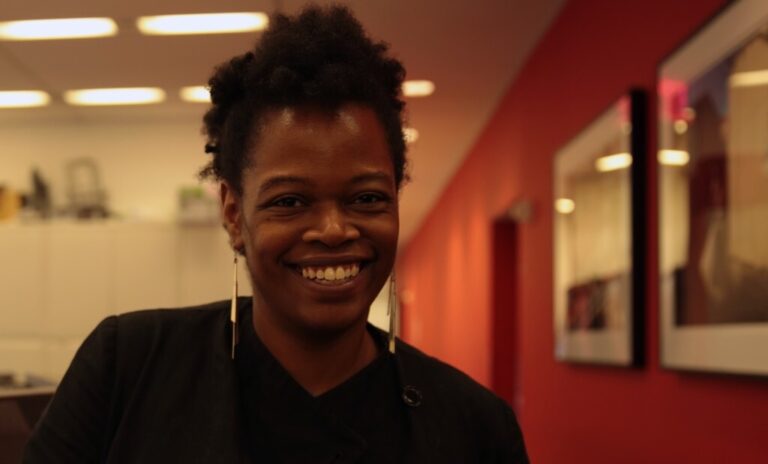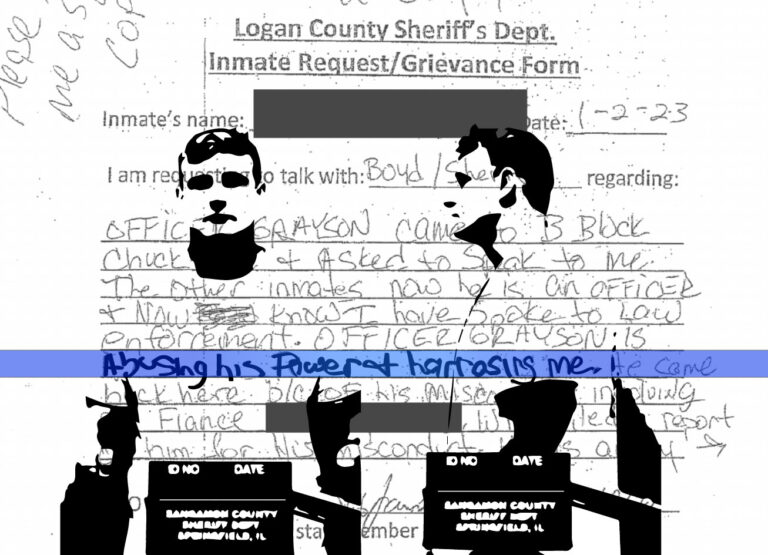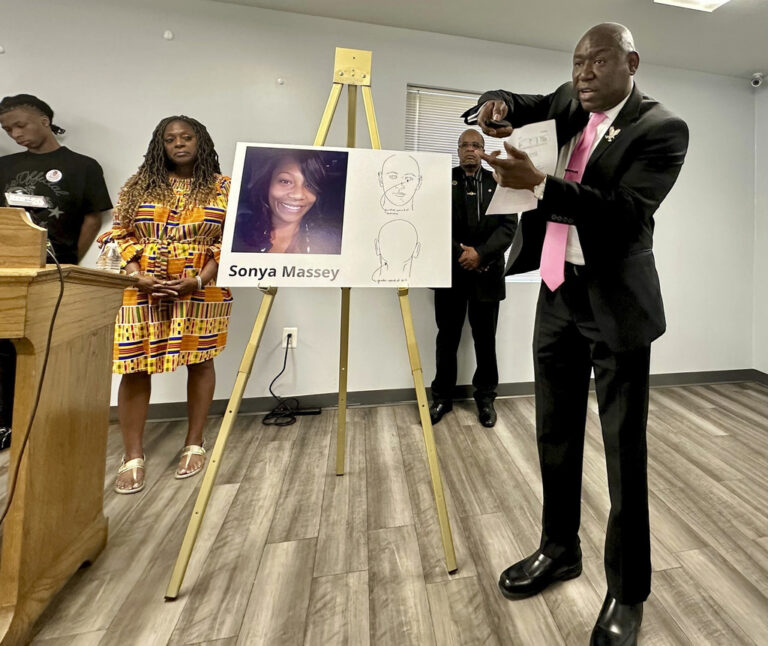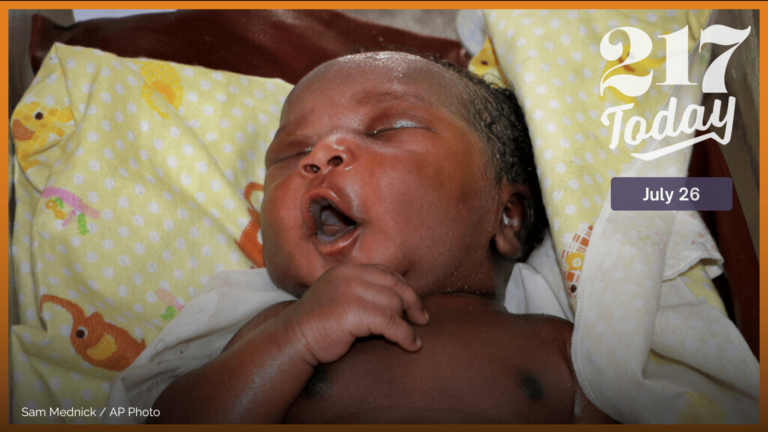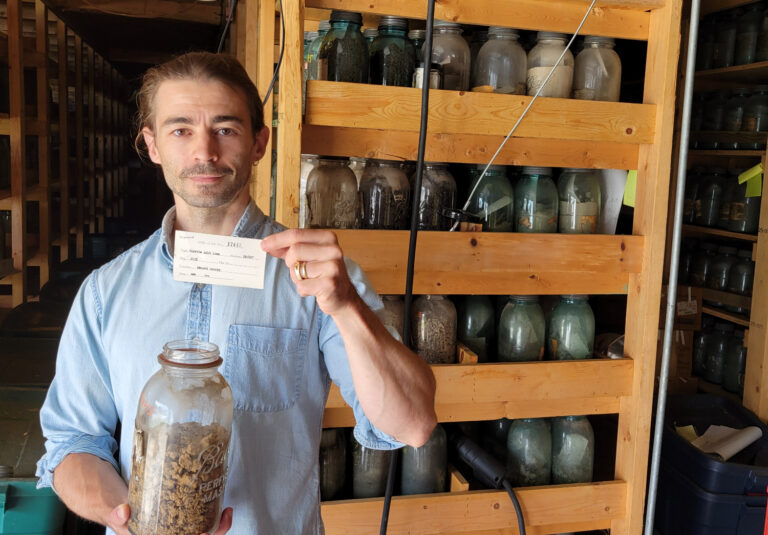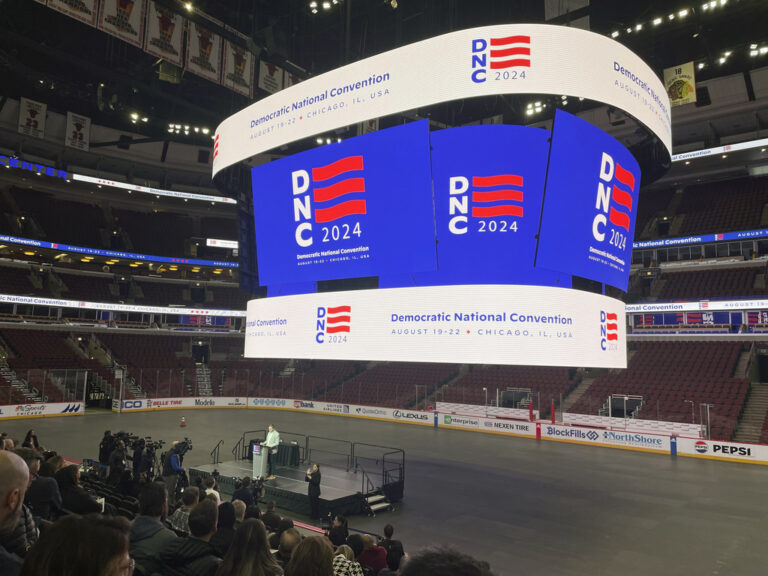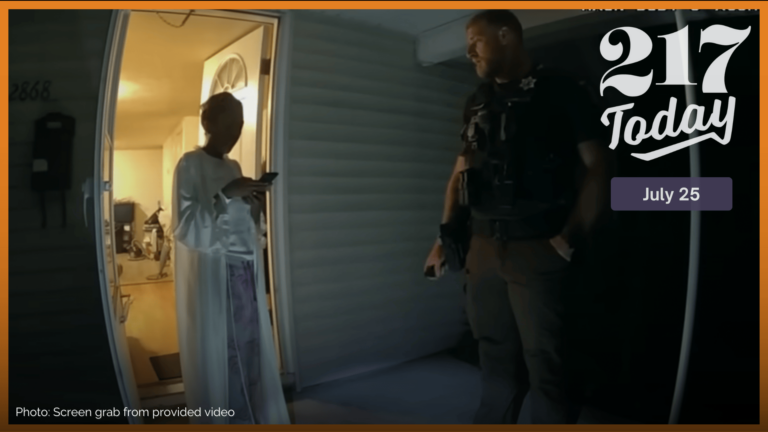The series The Black Church: This is Our Story, this is Our Song explores how the Black church has served as a nurturing ground for the major institutions that help define Black America for centuries.
On December 15, Illinois Public Media will host an episode of the series at the Virginia Theatre in downtown Champaign.
Illinois Public Media’s Director of Community Content and Social Engagement, Kimberlie Kranich, spoke with Shayla Harris, one of the directors and producers of the series, about the episode and the Black church’s influence on Black culture today.
The following interview has been edited for clarity and length.
Kimberlie Kranich: Tell me why being part of this particular series, but also this episode was so important to you.
Shayla Harris: I’m one of the producers and directors of The Black Church: This is our story. This is our song. It’s a four-part series exploring the history of the Black church in America hosted by Henry Louis Gates. And if you’re a fan of “Finding Your Roots” or any kind of PBS programming, you definitely know who Dr. Henry Louis Gates is. Any opportunity to work closely with him was something that I wanted to do immediately. So this was an incredible opportunity. I’ve done a lot of journalism and documentary production over my career and a lot of the subjects that I’m really interested in are questions around religion and questions around faith.
I have never done anything on the history of the Black church. I was raised Catholic so I don’t have the typical sort of Black church experience. So for me, this was an opportunity to tell a story from a sort of insider-outsider perspective. I grew up Black in America, obviously, and have a lot of understanding of American history, but certainly, this subject was slightly new to me. So the ability to learn a little bit more about that history and delve a little bit deeper was really exciting for me.
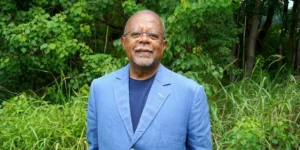
KK: So you learned along the way, as well as having your own experience.
SH: Yeah, exactly. It’s one of those stories that you think you know. I think a lot of people think when you talk about the Black church, people are like, “Oh, yeah, MLK, the Civil Rights Movement.” But we sort of really go back to 1619, you know, really the first time that African Americans came to this country and the impact that they had on the faith during slavery and through emancipation and through Jim Crow and through the Civil Rights Movement, and so by the time you get to the 50s and 60s, there’s hundreds of years of history that you’re like, “Oh, now it makes it so obvious why the church was so central to that political movement.”
And so I think it’s really important for us to be able to share that context and background with people so that they understood that that didn’t come out of nowhere, you know, that this is a long legacy within the Black church.
KK: What would you like people to come away with when you think about this particular episode of The Black Church?
SH: This episode, in particular, looks at the church as it emerges out of emancipation and really starts to become the sort of political, social, and economic heart of the African American community. And a lot of the things that we see emerging – in terms of political leaders that came out of the church, the role of women expanding in the church that we see sort of playing out really heavily in the 20th century, in the civil rights movement in figures like Senator Raphael Warnock, who’s the pastor of Ebenezer Baptist Church, the church of Martin Luther King – really find their origin story in this era.
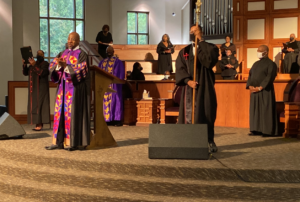
KK: Did you learn a lot about women at this time in the black church? And what was the most interesting thing or even the most thing that made you most angry if there was such a moment?
SH: So the women’s era is a really emerges right after emancipation. And it’s really where African American women realize that even though they don’t aren’t in the pulpit, aren’t leading churches as maybe preachers and aren’t ordained and sort of this official capacity, they have a lot of power in the church, they make up probably 80% of the people in the pews.
And so they really start to leverage that power in this era where they’re raising money. They’re organizing, they’re building schools, creating our own political organizations, and they’re really the backbone of the church, even if they don’t have power in the pulpit. And that was really surprising to me. I didn’t really know that much about this era. And it just goes to show you that just because you don’t have the power in any official capacity doesn’t mean that they are really running things, which I thought was really incredible and really, really surprising again, so we’ll see how African American women really, really start to emerge in this moment.
KK: When I watched the series…it’s unvarnished…and there’s a lot of violence. How would you address someone that said, “This is too much.” Or do we need a trigger warning? How do you grapple with that as a director-producer?
SH: One of the most difficult things, I think, about working on this series – and especially on this particular episode since it centers around this period after slavery and of the violence around Jim Crow and reconstruction – is the role of telling the story of that violence and how the church is the center of a lot of these attacks. It’s really tough. I think, as a filmmaker, you don’t want to glorify or revel in violence against Black bodies, but I also think it’s important to show what these churches and people were up against and the sense of their determination to kind of resist that level of oppression.
I think, to me, one of the most beautiful stories in this episode is about the rebuilding of Mother Emanuel, which I think ends up having a different story in the 21st century, but is really a triumphant story about emerging from the ashes of a church burning and attacks against the Black church and became the center of the Black community in Charleston. So there is this sort of blessing and curse part of the violence against the Black church in this era. But I think it’s really important context.
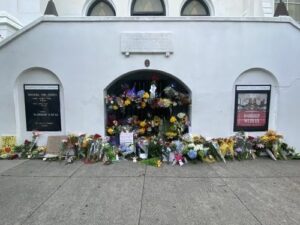
KK: I’m wondering if either you or Dr. Gates or someone on your team were thinking about Emmett Till‘s mother. How she dealt with that horrendous murder of her son.
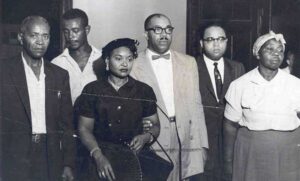
SH: There are a lot of echoes in the story about how to talk about violence and how to respond to racially motivated violence. We see it in the way that Mamie Till-Mobley, Emmett Till’s mother, responds to the unfortunate death of her child in this horrifying way and uses it to kind of rally people during the Civil Rights era.
We also see it in the response to the killing of nine parishioners at Mother Emanuel church in Charleston in the 21st century. You know, there is this really horrifying attack on a Black church on people in a Bible study by a White supremacist. And there is a really beautiful moment of forgiveness that comes from the victims of that attack, but also this sort of pulling together where Barack Obama sings “Amazing Grace” at this funeral that just brings people together.
So I think that there are a lot of ways that the African American community has responded to this violence, whether it’s a unifying thing or it’s a rallying thing, that I think is really important for people to understand.
KK: Why is this episode that takes place in the late 19th century relevant today in the 21st century?
SH: I think there are so many echoes of our contemporary history right now, in terms of where the United States is, and in its relationship to its racial history and past, but also in terms of the concerns and controversies around the Black church itself.
There are a lot of things that we see in this era that we also see repeated in our contemporary era, and I think it’s really helpful and useful for audiences to understand that history.
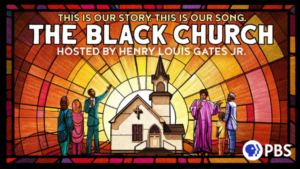
Illinois Public Media presents an episode of The Black Church: This is Our Story. This is Our Song on Friday, December 15th at 7pm at the Virginia Theatre in Champaign. A Q&A and live gospel performance follow the film. This is a free event. No tickets required.

